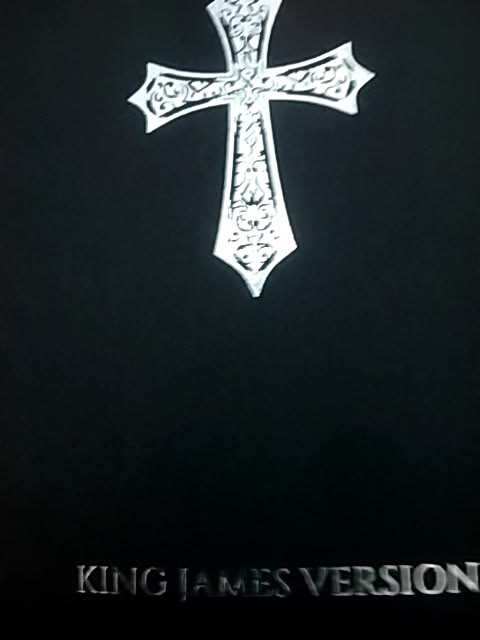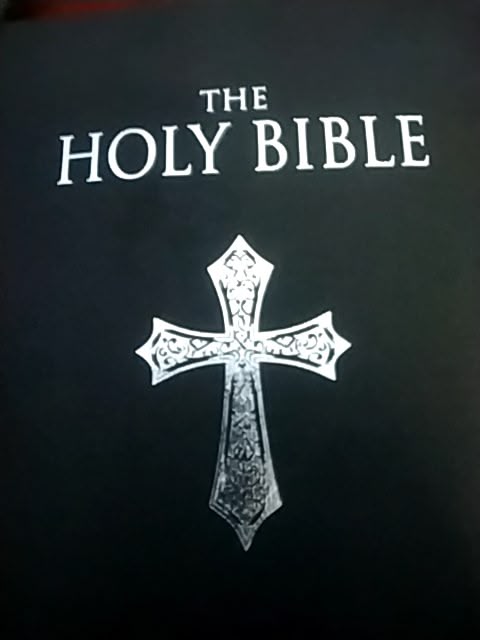This page is a permanent link to the reply below and its nested replies. See all post replies »

SW-User
The words of the LORD are pure words: as silver tried in a furnace of earth, PURIFIED SEVEN TIMES. - Psalms 12:6
English is the seventh language the Bible was written in. The seven languages recorded in history that the Bible was first written in are as follow:
1. Hebrew
2. Aramaic
3. Greek
4. Old Syriac
5. Old Latin
6. German
7. English
The King James Bible is the seventh English Bible to have its roots in the Masoretic text, (Hebrew Old Testament text) and the Textus Receptus, (Greek New Testament text).The Textus Receptus was preserved in Antioch Syria (where the disciples were first called Christians - Acts 11:26).
The first six English Bibles of the sixteenth century led to the seventh and final and perfect English, the KJB. The seven English Bibles from the proper manuscripts are as follows:
1. Tyndale New Testament 1526
2. Coverdale Bible. 1535
3. Matthew's Bible 1537
4. Great Bible 1539
5. Geneva Bible 1560
6. Bishop's Bible 1568
7. Authorized Version 1611
They were all part of the purification stages, Psalms 12:6-7, "The words of the LORD are pure words: as silver tried in a furnace of earth, purified seven times." 7. "Thou shalt keep them, O Lord, thou shalt preserve them from this generation for ever."
The 6 Modern English translations leading up to the KJV were all translated from various editions of what we call today the Greek "Textus Receptus." The first several of these printed Greek editions were published by Desiderius Erasmus, and later editions used to produce the Geneva Bible and Bishops Bible were published by Robert Estienne a.k.a Stephanus. The KJV translators also translated from the Greek Textus Receptus, using the editions of Erasmus, Stephanus, and Beza.
Modern Bible versions are translated from a completely different source. They are translated by critical texts edited by Nestle/Aland and the United Bible Societies in the 20th Century. These modern Greek editions are based on corrupt manuscripts like Codex Vaticanus and Codex Sinaiticus, as well as more recent Egyptian papyri discoveries. It is not a coincidence that Egypt is the source of the corruption underlying modern perversions like the NIV, ESV, NLT, etc.
The 6 Bibles leading up to the KJV were all translated from the Textus Receptus (the correct Greek textual tradition) and are therefore consistent with the KJV. They agree with the KJV. The modern versions, on the other hand, are dramatically different. Therefore, if a person accepts the modern Bible versions as accurate, they are not only rejecting the King James Version. They are also rejecting every English Bible that came before it! According to them, every English translation before the 20th Century has been wrong!
The King James Bible is the culmination of the 6 Bibles that led up to it. It is the culmination of almost 100 years of scholarship and sacrifice that gave us our English Bible. That is why the 6 earlier translations eventually went out of print, and the KJV became the standard English Bible used by virtually all Christians until recently. People recognized that the KJV was the final draft of the English Bible, so it replace the 6 rough drafts that led up to it. The 6 Bibles before the KJV were good Bibles, and the KJV could never have been the magnificent Bible that it is without having had those 6 excellent rough drafts.
God has gone to all the trouble to inspire the perfect originals. He has collated the books of the Old Testament and New Testament and documented their authenticity. He has preserved His words against attack from Roman Catholic tyrants and Alexandrian philosophers. This process has cost Him the lives, homes, and families of some of His most faithful servants. He assembled the very best scholars in history and had them translate it into the world’s language (English) in its absolutely purest form.
English is the seventh language the Bible was written in. The seven languages recorded in history that the Bible was first written in are as follow:
1. Hebrew
2. Aramaic
3. Greek
4. Old Syriac
5. Old Latin
6. German
7. English
The King James Bible is the seventh English Bible to have its roots in the Masoretic text, (Hebrew Old Testament text) and the Textus Receptus, (Greek New Testament text).The Textus Receptus was preserved in Antioch Syria (where the disciples were first called Christians - Acts 11:26).
The first six English Bibles of the sixteenth century led to the seventh and final and perfect English, the KJB. The seven English Bibles from the proper manuscripts are as follows:
1. Tyndale New Testament 1526
2. Coverdale Bible. 1535
3. Matthew's Bible 1537
4. Great Bible 1539
5. Geneva Bible 1560
6. Bishop's Bible 1568
7. Authorized Version 1611
They were all part of the purification stages, Psalms 12:6-7, "The words of the LORD are pure words: as silver tried in a furnace of earth, purified seven times." 7. "Thou shalt keep them, O Lord, thou shalt preserve them from this generation for ever."
The 6 Modern English translations leading up to the KJV were all translated from various editions of what we call today the Greek "Textus Receptus." The first several of these printed Greek editions were published by Desiderius Erasmus, and later editions used to produce the Geneva Bible and Bishops Bible were published by Robert Estienne a.k.a Stephanus. The KJV translators also translated from the Greek Textus Receptus, using the editions of Erasmus, Stephanus, and Beza.
Modern Bible versions are translated from a completely different source. They are translated by critical texts edited by Nestle/Aland and the United Bible Societies in the 20th Century. These modern Greek editions are based on corrupt manuscripts like Codex Vaticanus and Codex Sinaiticus, as well as more recent Egyptian papyri discoveries. It is not a coincidence that Egypt is the source of the corruption underlying modern perversions like the NIV, ESV, NLT, etc.
The 6 Bibles leading up to the KJV were all translated from the Textus Receptus (the correct Greek textual tradition) and are therefore consistent with the KJV. They agree with the KJV. The modern versions, on the other hand, are dramatically different. Therefore, if a person accepts the modern Bible versions as accurate, they are not only rejecting the King James Version. They are also rejecting every English Bible that came before it! According to them, every English translation before the 20th Century has been wrong!
The King James Bible is the culmination of the 6 Bibles that led up to it. It is the culmination of almost 100 years of scholarship and sacrifice that gave us our English Bible. That is why the 6 earlier translations eventually went out of print, and the KJV became the standard English Bible used by virtually all Christians until recently. People recognized that the KJV was the final draft of the English Bible, so it replace the 6 rough drafts that led up to it. The 6 Bibles before the KJV were good Bibles, and the KJV could never have been the magnificent Bible that it is without having had those 6 excellent rough drafts.
God has gone to all the trouble to inspire the perfect originals. He has collated the books of the Old Testament and New Testament and documented their authenticity. He has preserved His words against attack from Roman Catholic tyrants and Alexandrian philosophers. This process has cost Him the lives, homes, and families of some of His most faithful servants. He assembled the very best scholars in history and had them translate it into the world’s language (English) in its absolutely purest form.
ChipmunkErnie · 70-79, M
@SW-User In other words, a good translation is a bad idea because it gets closer to the original meaning and intent?






